Posted on March 7, 2016 by The Orwell Prize -

Sudhir Hazareesingh’s How the French Think is a warm yet incisive exploration of the French intellectual tradition, and its exceptional place in a nation’s identity and lifestyle. The French: orderly and anarchic, rational and mystical, arrogant and anxious, charming and exasperating, serious and frivolous, pessimistic, pleasure-loving – and, perhaps more than any other people, intellectual. In this original and entertaining approach to France and the French, Sudhir Hazareesingh describes how the French ways of thought and life connect to make them such a distinctive nation. One of the purposes of How The French Think is to convey the ideas of some of the most influential French thinkers of the past 400 years – Voltaire and Rousseau, Hugo and Michelet, Camus and Sartre, Lévi-Strauss and Foucault. Sudhir Hazareesingh is able to show how bold, imaginative and sweeping French thought is, how greatly it values high culture (in contrast to the English) and how it has given an almost sacred role to the writer – hence the prominent role of intellectuals in French collective life, and the intensity with which ideas are debated. The book explores the French commitment to rationalism and ideology, their belief in the State, their cult of heroes and their contempt for materialism. It describes their stylistic fetishes, their fondness for general notions, their love of paradoxes, their current fixations with the nation and collective memory, their messianic instincts and their devotion to universalism. ‘France’, claimed the historian Ernest Lavisse without a trace of irony, ‘is charged with representing the cause of humanity’. How The French Think ranges from Descartes to Derrida, and from big moral and philosophical issues to the symbolic significance of Astérix and the survival of the French language in a globalized world. Drawing on a colourful range of sources, and written with warmth and humour, it will appeal to all lovers of France and of French culture. Taken from and read more at https://www.penguin.co.uk/books/184683/how-the-french-think/#c3QayDq6CW5RiSLZ.99
Posted on March 2, 2016 by The Orwell Prize -

This project was conceived, planned, led and written by David Cohen. However, the photography was a key part of the project. David worked exclusively with Matt Writtle, an experienced freelance photographer who has often partnered him on his Evening Standard special projects, and Kiran Mensah, who he recruited from the Angell Town estate where Kiran had spent much of his youth. Kiran is a freelance photographer who had studied photography at university but had never been published in the mainstream press until he joined the team. The three of them formed a close-knit team that spent many months on the estate.
Journalistic Writing
Photojournalism
Social Media Content
Posted on March 2, 2016 by The Orwell Prize -
Posted on March 2, 2016 by The Orwell Prize -
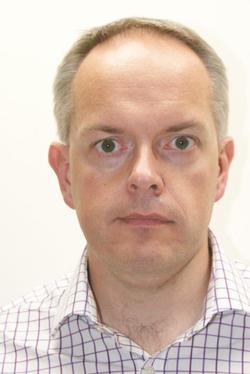
Michael Buchanan’s investigation into Southern Health exposed the failure of one of England’s biggest mental health trusts to investigate the unexpected deaths of hundreds of mental health patients and people with learning disabilities. The items were the product of weeks of sensitive and challenging conversations with those affected – several people broke down as they recalled the poor care their son or daughter had received prior to their death; many told us they were astonished that we were interested in hearing their stories after their own often repeated efforts had been ignored by the trust, regulators and others. The investigation led to the Health Secretary being forced to come to the House of Commons to answer urgent questions, where he announced a nationwide inquiry into how the NHS as a whole investigates the deaths of people with learning disabilities. Michael says “The stories we uncovered as part of this extensive investigation have given a voice to some of society’s most vulnerable individuals – mental health patients, people with learning disabilities – and have made it harder for the NHS to ignore their concerns. The mid-Staffs scandal highlighted poor practices in acute care; the failings we exposed at Southern Health have shone a light on the problems within mental health trusts, with few deaths investigated and lessons rarely learned from previous incidents.”
Journalistic Writing
Video Content
- Investigation into NHS Failings – 09/12/2015, BBC 1 10 O’Clock News
Audio Content
Posted on March 2, 2016 by The Orwell Prize -

Louise Tickle is an education and social affairs journalist. @louisetickle
Submitted Articles
Posted on March 2, 2016 by The Orwell Prize -

Journalistic Writing
Video Content
Posted on March 2, 2016 by The Orwell Prize -

Gideon Rachman became chief foreign affairs columnist for the Financial Times in July 2006. He joined the FT after a 15-year career at The Economist, which included spells as a foreign correspondent in Brussels, Washington and Bangkok. He also edited The Economist’s business and Asia sections. His particular interests include American foreign policy, the European Union and globalisation.
@gideonrachman
Submitted Articles
Posted on March 2, 2016 by The Orwell Prize -
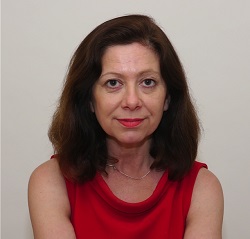
I have been reporting from the Family Courts since 2009, when journalists were first allowed in to hear cases. In 2011 I first came across the problem of mothers who are – in effect – producing babies for the care system,for years a hidden problem, and surely a social evil. A mother will have one or more children removed, because of abuse or neglect, grieve for the child or children,and quickly become pregnant again–as if the children had died,the mother wants to replace them. The family courts, the social workers, focus on the child who’s been removed, the mothers receive little help.They often fail to change their lifestyle, or end their addiction, which had led to the original care case. Some of the mothers are very young when they lose their first child. They will come before the Court again – and lose the new baby at birth. They often become pregnant again. I have learned of one mother who has had sixteen successive children removed. In 2014 I made contact with Professor Karen Broadhurst, who is analysing Family Court records for the first time, and reported her initial findings, which for the first time identified the huge scale of this phenomenon:over 7 years nearly 23,000 children in England had been taken into care from these so called “repeat” mothers. Aware that – since the death of Baby Peter Connelly – many social workers are acting more quickly than they did in the past – I asked Professor Broadhurst if she could establish how many babies were actually “born into care” – that is, subject to care proceedings at birth.She told me that the numbers were increasing dramatically, and that many of the babies came from these “repeat” mothers. I coupled this news story with further investigation, including interviews with mothers. The resulting articles on Today and BBC News were very widely picked up, in the UK and worldwide. Both the Prime Minister and Education Secretary were asked about the issue. Over the years I have followed the small number of poorly funded projects which try to break this cycle, notably the Family Drug and Alcohol Court, whose extension I reported in February this year. Michael Gove, the Lord Chancellor, is now looking at “problem solving” courts like these, to try to end these destructive cycles.
Journalistic Writing
Audio Content
Posted on March 2, 2016 by The Orwell Prize -
Posted on March 2, 2016 by The Orwell Prize -
Daniel Douglas’s investigation into the mistreatment of homeless families exposed the full scale of a mass uprooting of over 100,000 vulnerable homeless children in the capital; a scandal the government had kept hidden from public view.
The investigation, published on the front page of The Independent a week before the 2015 general election, sparked widespread outrage and accusations of social cleansing from across the political spectrum and from leading housing and children’s charities.
London mayor Boris Johnson speaking to the BBC about austerity and welfare cuts in 2010, pledged: “On my watch you are not going to see thousands of families evicted from the place where they have been living.” The investigation established beyond any doubt that this promise to Londoners had been broken.
A Supreme Court ruling in April 2015 strengthened the established legal position that forcing homeless families out of their local authority is unlawful and unjustifiable in the vast majority of cases.
Labour’s mayoral candidate Sadiq Khan, commenting at the time of publication, called the “social cleansing of London a badge of shame for this government”.
The story brought to public attention a subject that rarely makes the front page of a national newspaper, and gave voice to a section of the community that often is not able to speak up for itself.
Journalistic Writing
Social Media Content
@_dandouglas
Posted on March 2, 2016 by The Orwell Prize -

Submitted Articles
Posted on March 2, 2016 by The Orwell Prize -

Emily Dugan, The Independent’s Social Affairs Editor, has been responsible for a succession of scoops, campaigns and investigations which demonstrate her powerful sense of social justice and a tenacious determination to correct wrongs however vested the interests she is challenging. Emily’s reporting almost single-handedly force the Government to reverse its iniquitous court charges (whereby innocent defendants were often left with no choice but to plead guilty just to avoid this injust imposition). Over a period of months she exposed case after case of unfairness, stirred up massive dissent among lawyers and magistrates and eventually was able to report that Michael Gove was reversing the policy. This was a triumph of relentless digging and it is only because of Emily’s sense of mission and her refusal to give up that a policy so brazenly unjust has finally been consigned to history.
Journalistic Writing
Social Media Content
Posted on March 2, 2016 by The Orwell Prize -

We set out to move beyond the emotional claim and counter-claim which has characterised the debate over the impact of government spending cuts. To do this, we carried out an extensive, and ground-breaking, analysis of data from every local authority to measure the effect of the reductions on people’s lives. We discovered how many fewer elderly people were being looked after by social services, how many more homeless children were being accommodated in B&Bs and how much less was being spent on each child at risk of abuse and neglect. To fill what we regarded as a serious gap in public understanding, we then created an interactive feature which automatically detects where the reader is, presenting a personalised snapshot of the story and allowing him or her to discover what has happened to services in their localities over the past five years.
Journalistic Writing
Social Media Content
Posted on March 2, 2016 by The Orwell Prize -

David Gardner is International Affairs Editor at the Financial Times.
Submitted Articles
Posted on March 2, 2016 by The Orwell Prize -
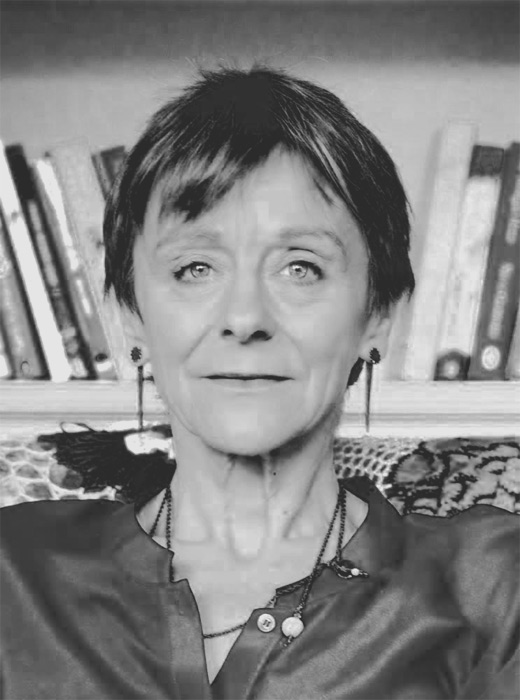
Nicci Gerrard is a novelist and author of Soham: A Story Of Our Times. She also writes with her partner Sean French as Nicci French. With nearly one million Britons in the grip of dementia, it’s hardly surprising that writers and artists should increasingly tackle the subject. But can the arts ever illuminate a condition that by its very nature resists all understanding?
@FrenchNicci
Submitted articles
Posted on March 2, 2016 by The Orwell Prize -

Rosie Blau is China correspondent for The Economist. @RosieBlau
Submitted Articles
Park Life -The Economist, 19/12/2015 Young, single and what about it? – The Economist, 29/08/2015 The King and I – The Economist, 29/08/2015 Dream of the bed chamber – The Economist, 21/11/2015 The critical masses – The Economist, 11/04/2015 Almost home – The Economist, 10/ 10/2015
Posted on March 2, 2016 by The Orwell Prize -
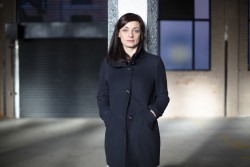
It’s Britain’s housing benefit scandal. Nine billion pounds of taxpayers’ money goes to private landlords every year in housing benefit. It should help some of the country’s poorest people secure decent housing, but rogue landlords are milking the system while their tenants live in squalor. In a documentary described by the housing charity Shelter as a “masterpiece” and “the best expose of this issue” yet, Alys Harte investigated some of the country’s worst landlords – and the vast sums of money they’ve been getting from the UK taxpayer. Undercover filming and amateur footage obtained by Panorama uncovered properties with cockroach infestations, leaking raw sewage, chronic damp, cell-like rooms, and lethal fire hazards. Working with Director/ Producer Jonathan Coffey and Executive Producer, Andrew Head, this was Alys Harte’ s first film as reporter for Panorama. In recent years, Alys has made documentaries on subjects including illegal dumping and organised crime in Northern Ireland, access to abortion services in Ireland, female violence, and riots resulting from loyalist marching bands in Belfast. She has worked as a journalist in television current affairs at the BBC for eight years.
Journalistic Writing
Video Content
Posted on March 2, 2016 by The Orwell Prize -
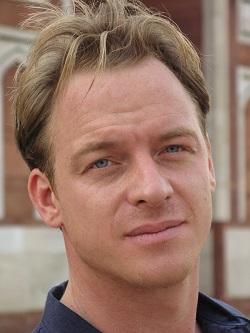
James Astill is The Economist’s Washington correspondent and the fomer Political Editor and Bagehot columnist. @jamesmastill
Submitted articles
Bagehot: Leaner but meaner – The Economist, 21/05/2015 Bagehot: The view from Grimsby – The Economist, 25/04/2015 David Cameron: A lucky leader in an unlucky time – The Economist, 25/04/2015 Bagehot: The End of Industry – The Economist, 27/06/2015 US civil-military relations: Who will fight the next war? – The Economist, 24/10/2015 Donald Trump: The Greatest Show on Earth – The Economist, 05/12/2015
















